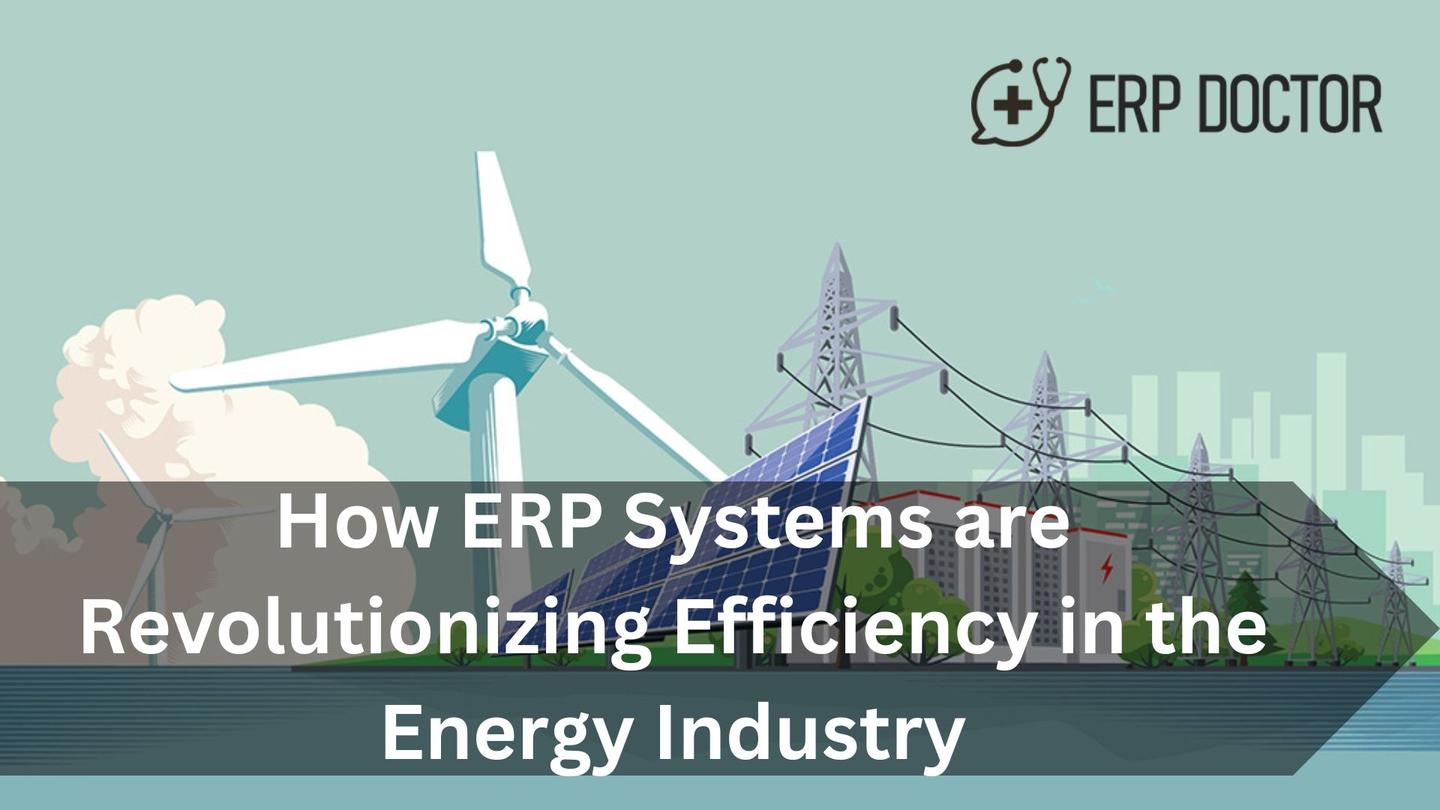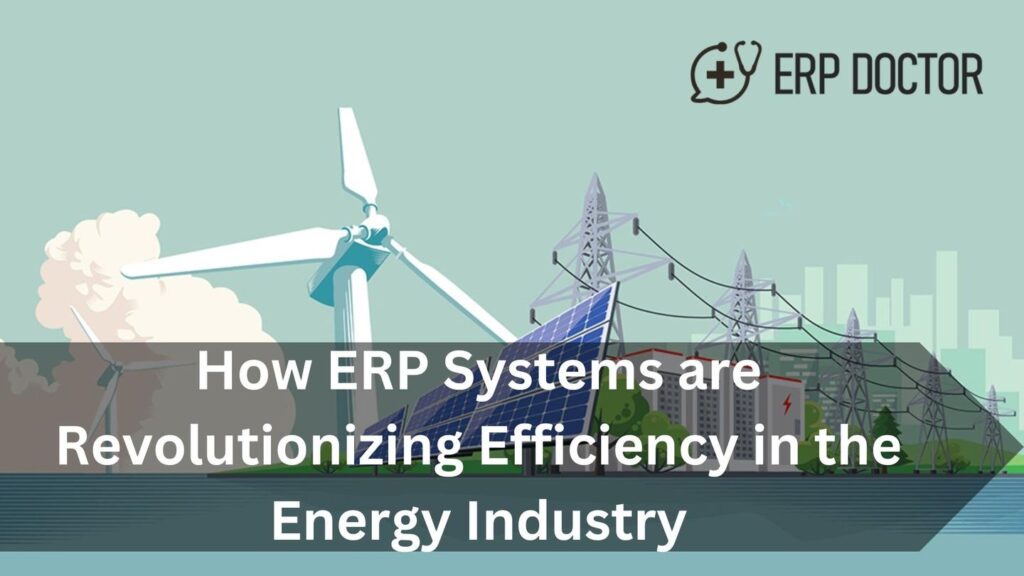
How ERP Systems are Revolutionizing Efficiency in the Energy Industry

Transform Your Energy Business with Cutting-Edge ERP Solutions
In the fast-paced and ever-evolving energy industry, staying competitive requires more than just cutting-edge technology and innovation. It demands an efficient, integrated approach to managing resources, operations, and data. Enter ERP (Enterprise Resource Planning) systems—powerful tools designed to streamline processes, enhance productivity, and drive growth. In this blog, we’ll explore how ERP software can revolutionize the energy sector, and why investing in a tailored ERP solution is crucial for success.
What is ERP and How Does It Benefit the Energy Industry?
ERP stands for Enterprise Resource Planning, a type of software that integrates various business processes into a unified system. For the energy industry, ERP systems provide a comprehensive solution that covers everything from resource management and financial planning to supply chain logistics and regulatory compliance.
1. Streamlined Operations
One of the most significant advantages of ERP systems in the energy sector is their ability to streamline operations. By consolidating data and automating workflows, ERP software reduces manual processes, minimizes errors, and speeds up decision-making. For instance, an ERP system can integrate data from exploration, production, and distribution, providing a real-time view of operations and enabling more efficient management.
2. Enhanced Financial Management
Financial management is critical in the energy industry, where large capital expenditures and fluctuating commodity prices are common. ERP solutions offer robust financial management tools, including budgeting, forecasting, and financial reporting. These capabilities help energy companies track expenses, manage investments, and ensure compliance with financial regulations, ultimately leading to better financial control and stability.
3. Improved Supply Chain Efficiency
The energy sector relies heavily on a complex supply chain, from procurement of raw materials to the delivery of finished products. ERP systems enhance supply chain efficiency by offering features like inventory management, order processing, and supplier relationship management. By optimizing these processes, energy companies can reduce lead times, lower costs, and improve overall supply chain performance.
4. Regulatory Compliance
Compliance with industry regulations and environmental standards is a significant challenge for energy companies. ERP software helps manage this by providing tools for tracking and reporting compliance metrics. This ensures that companies adhere to regulatory requirements and avoid potential fines or legal issues, all while maintaining high standards of operational efficiency.
5. Data-Driven Decision Making
In the energy industry, making informed decisions is key to staying competitive. ERP systems aggregate data from various sources, offering advanced analytics and reporting capabilities. This data-driven approach allows companies to gain insights into performance trends, identify potential issues before they escalate, and make strategic decisions based on accurate, real-time information.
Choosing the Right ERP Solution for the Energy Industry
Selecting the right ERP solution involves evaluating several factors to ensure it meets the specific needs of the energy sector. Here are some key considerations:
- Industry-Specific Features: Look for ERP software that offers features tailored to the energy industry, such as asset management, project accounting, and regulatory compliance tools.
- Scalability: The ERP system should be scalable to accommodate future growth and changes in the industry.
- Integration Capabilities: Ensure the ERP solution can integrate with existing systems and technologies to create a seamless flow of information.
- Vendor Support: Choose a vendor that provides comprehensive support and training to ensure a smooth implementation and ongoing use.
Incorporating an ERP systems into the energy industry can transform how companies operate, manage resources, and achieve their goals. By streamlining operations, enhancing financial management, improving supply chain efficiency, ensuring regulatory compliance, and enabling data-driven decision-making, ERP software provides a strategic advantage that can lead to increased efficiency and growth.
Investing in the right ERP is not just about keeping up with industry trends—it’s about setting the pace for success. As the energy sector continues to evolve, having a robust ERP system in place will be a key driver in staying ahead of the competition and achieving long-term success.
For more information on ERP solutions and how they can benefit your Energy business, visit us at: https://erpdoctor.in/
Want to speak to an expert? Fill in the form below, and we will be in touch with you shortly!



